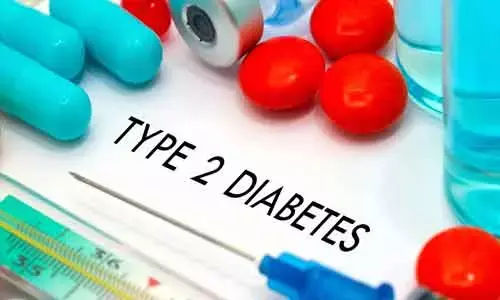- Home
- Medical news & Guidelines
- Anesthesiology
- Cardiology and CTVS
- Critical Care
- Dentistry
- Dermatology
- Diabetes and Endocrinology
- ENT
- Gastroenterology
- Medicine
- Nephrology
- Neurology
- Obstretics-Gynaecology
- Oncology
- Ophthalmology
- Orthopaedics
- Pediatrics-Neonatology
- Psychiatry
- Pulmonology
- Radiology
- Surgery
- Urology
- Laboratory Medicine
- Diet
- Nursing
- Paramedical
- Physiotherapy
- Health news
- Fact Check
- Bone Health Fact Check
- Brain Health Fact Check
- Cancer Related Fact Check
- Child Care Fact Check
- Dental and oral health fact check
- Diabetes and metabolic health fact check
- Diet and Nutrition Fact Check
- Eye and ENT Care Fact Check
- Fitness fact check
- Gut health fact check
- Heart health fact check
- Kidney health fact check
- Medical education fact check
- Men's health fact check
- Respiratory fact check
- Skin and hair care fact check
- Vaccine and Immunization fact check
- Women's health fact check
- AYUSH
- State News
- Andaman and Nicobar Islands
- Andhra Pradesh
- Arunachal Pradesh
- Assam
- Bihar
- Chandigarh
- Chattisgarh
- Dadra and Nagar Haveli
- Daman and Diu
- Delhi
- Goa
- Gujarat
- Haryana
- Himachal Pradesh
- Jammu & Kashmir
- Jharkhand
- Karnataka
- Kerala
- Ladakh
- Lakshadweep
- Madhya Pradesh
- Maharashtra
- Manipur
- Meghalaya
- Mizoram
- Nagaland
- Odisha
- Puducherry
- Punjab
- Rajasthan
- Sikkim
- Tamil Nadu
- Telangana
- Tripura
- Uttar Pradesh
- Uttrakhand
- West Bengal
- Medical Education
- Industry
Higher intake of whole grains may lower diabetes risk, finds study

Higher intake of high quality carbohydrates, especially from whole grains is associated with a lower Type 2 Diabetes risk finds a new study.
Carbohydrate intake has been reported to be associated with higher type 2 diabetes (T2D) risk, but high and low quality of carbohydrate may have different effects.
Researchers have found in a large study of more than 200,000 people that eating high-quality carbohydrates, such as whole grains, was associated with a lower risk for type 2 diabetes.The researchers will present the new findings as part of NUTRITION 2020 LIVE ONLINE, a virtual conference hosted by the American Society for Nutrition (ASN).
The investigators conducted the study to examine associations of isocalorically substituting high quality carbohydrates (HQC) and low quality carbohydrates (LQC) with other macronutrients on T2D risk.
"High intake of carbohydrates has been suggested to be associated with a higher risk of type 2 diabetes," said research team leader Kim Braun, PhD, from Erasmus University Medical Center and Harvard T.H. Chan School of Public Health. "We looked at whether this effect is different for high-quality carbohydrates and low-quality carbohydrates, which include refined grains, sugary foods and potatoes."
Braun and colleagues analyzed data from three studies that followed health professionals in the U.S. over time. These included 69,949 women from the Nurses' Health Study, 90,239 women from the Nurses' Health Study 2 and 40,539 men from the Health Professionals Follow-up Study. Collectively, the studies represented over 4 million years of follow-up, during which almost 12,000 cases of type 2 diabetes cases were documented.
The researchers observed a lower risk of type 2 diabetes when high-quality carbohydrates replaced calories from saturated fatty acids, monounsaturated fats, polyunsaturated fats, animal protein and vegetable protein. They also found that replacing low-quality carbohydrates with saturated fats, but not with other nutrients, was associated with a lower risk of type 2 diabetes.
"These results highlight the importance of distinguishing between carbohydrates from high- and low- quality sources when examining diabetes risk," said Braun. "Conducting similar studies in people with various socio-economic backgrounds, ethnicities and age will provide insight into how applicable these findings are for other groups."
For further reference log on to:
American Society for Nutrition
Dr Kamal Kant Kohli-MBBS, DTCD- a chest specialist with more than 30 years of practice and a flair for writing clinical articles, Dr Kamal Kant Kohli joined Medical Dialogues as a Chief Editor of Medical News. Besides writing articles, as an editor, he proofreads and verifies all the medical content published on Medical Dialogues including those coming from journals, studies,medical conferences,guidelines etc. Email: drkohli@medicaldialogues.in. Contact no. 011-43720751


